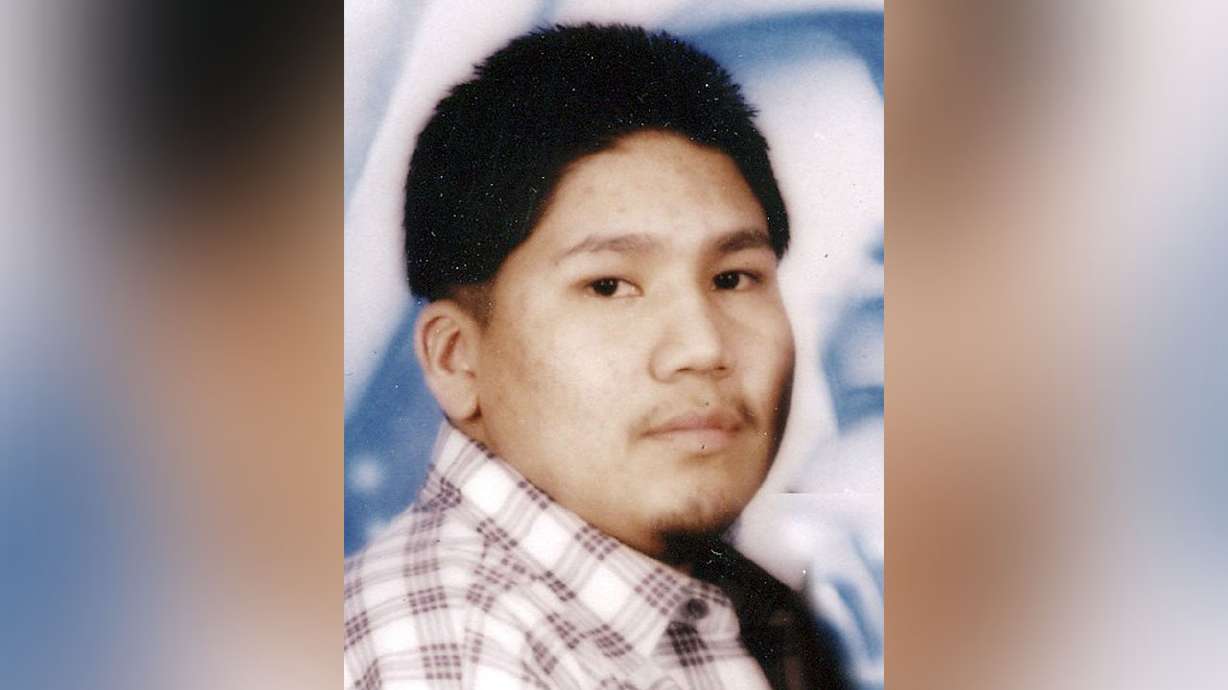Estimated read time: 5-6 minutes
This archived news story is available only for your personal, non-commercial use. Information in the story may be outdated or superseded by additional information. Reading or replaying the story in its archived form does not constitute a republication of the story.
VERNAL — A federal appeals court has ruled that there is no evidence to support a Utah family's allegation that their son was murdered by a police officer in 2007 at the end of a high-speed chase.
In a 37-page opinion handed down Tuesday, the 10th Circuit Court of Appeals upheld U.S. District Judge Tena Campbell's decision to dismiss a lawsuit filed by the parents of Todd Rory Murray against the state of Utah, Uintah County, the city of Vernal, and 11 current and former law enforcement officers.
A panel of three appellate court judges said Murray's parents failed to prove any of the officers illegally seized their son, so their remaining constitutional claims "unravel from there."
Evidence and testimony presented to the court showed that Murray never "submitted to any show of authority" by police during or after an April 2007 chase, according to the judges' ruling. In fact, the evidence showed that Murray ignored all commands from law enforcement, shot at a police detective and then took his own life, the judges wrote.
"(No one) was within 100 yards of Murray when he was shot, and so Murray is the only person who could have inflicted a contact wound," they wrote.
The chase
The chase that preceded Murray's death began when a Utah Highway Patrol trooper tried to pull over a 17-year-old driver for speeding on U.S. 40 in Uintah County. Murray, 21, was a passenger in the car.
The teen took off and speeds reached 125 mph before he crashed on the Uintah-Ouray Indian Reservation, troopers said. The teen and Murray ran from the car in opposite directions.
The trooper caught the driver. An off-duty Vernal police detective, a Uintah County sheriff's deputy and a second UHP trooper arrived and were asked to search for Murray.
The off-duty detective said Murray fired a handgun at him from about 100 yards away, so he returned fire and sought cover. The detective's rounds did not hit Murray, who ultimately shot himself in the head with a .380-caliber pistol, according to court records.
An FBI agent testified that he found two shell casings from the detective's gun 113 yards away from where Murray fell. The detective didn't have any blood on him when he was seen immediately after the shooting, the agent said.
An autopsy report showed Murray was "acutely intoxicated and had recently used methamphetamine" at the time of his death. There was also a $20,000 warrant outstanding for his arrest on pending drug charges.
Family suit
Murray's family filed a federal lawsuit against every state, county and city officer who responded to the incident and their respective agencies seeking $6 million. In their complaint, they claimed the officers lacked jurisdiction to pursue their son onto the Uintah-Ouray Indian Reservation.
Murray's parents contend that the chase began within the boundaries of the reservation, and that officers continued to pursue their son, who was an enrolled tribal member, on foot after the crash, even though they had no probable cause to believe he — as a passenger in the car — had committed a crime.
They also claimed in court records that officers killed Murray, then orchestrated a cover-up to make it look like a suicide — an allegation that was flatly rejected by U.S. District Judge Tena Campbell when she dismissed the suit in March 2014 and renounced again in the 10th Circuit Court's ruling.

'No genuine dispute'
"There is no genuine dispute of fact that the shooter was anyone but Murray himself," the appellate judges wrote.
Frances Bassett, an attorney for the family, said they had hoped their claims would be heard and decided by a jury.
"Naturally, the family is disappointed in a ruling that terminates the case before a trial was even conducted," she said.
The family's attorneys are reviewing the appellate court's decision to see if there are grounds for possible review by the entire 10th Circuit Court or the Supreme Court, Bassett said.
"Obviously, attorneys for the family will need to confer with the family before any decisions on further review are made," she said.
An expected appeal
Jesse Trentadue, who represents the county and city officers and their municipalities, said he expects an appeal.
"We obviously hope this would be the end," he said, "but this case is not about Todd Murray. This case is about the Ute Tribe's effort to take control of eastern Utah."
Trentadue noted that the Murray family's lawyers work for Fredericks Peebles & Morgan, the same law firm that serves as general counsel for the tribe. The firm has filed several lawsuits in recent years against officials and officers in Duchesne, Uintah and Wasatch counties on behalf of the tribe or individual tribal members.
October ruling
The firm also sought to have the Murray case heard in Ute Tribal Court after Campbell dismissed the federal case. A different federal judge ruled in October that the tribal court lacked jurisdiction to hear the case.
Trentadue considers the lawsuits frivolous and said they're part of a 40-year-old fight over who has criminal and civil jurisdiction over enrolled tribal members in a region of the state that once was or still is part of the Ute Tribe's federally established reservation.
In November, the counties asked the U.S. Supreme Court to take up the jurisdiction issue, resolve the problems caused by conflicting court rulings and "provide a single answer to this recurring question of federal law."
"Will we see an end to this?" Trentadue said. "Not for a long time, I'm afraid. It's about power and that's the motivation for these lawsuits."








